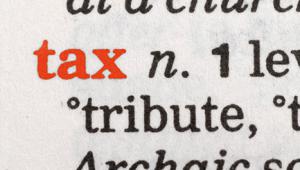The think-tank said that, despite comparably low levels of funding, more children in Latvia continue on to university than they do in the US, Germany, Japan or France. Children also start school at a younger age than in many OECD countries.
Andreas Schleicher, OECD director for education and skills, said such improvements in student performance were “remarkable” considering the socio-economic challenges of the past two decades.
“Sustaining this progress will be central to realising Latvia’s ambitions in education and for society as a whole.”
However. he noted the need for a stronger focus on equity and quality and ongoing research to catalyse reforms across the entire system.
Latvia’s public expenditure on education and per-student funding at all levels of schooling is lower than most OECD countries, and the think-tank warned efficiency gains will be contingent on the success of reforms to the funding system.
Reviewing governance and funding for childhood education and care, as well as a more targeted and systematic approach to the development of teachers and school leaders, would help reduce the gap in access to education across urban and rural areas.
Despite a range of policies to counteract unequal access, results from a 2012 test showed that urban students outperformed rural students by the equivalent of more than a year of schooling – compared to the half a year average across the OECD.
The report noted that many smaller municipalities lack the capacity to effectively manage their local education systems, and evidence suggests there is a need to rebalance high levels of autonomy with greater public accountability.
It added the same is true of the tertiary education system, which would benefit from greater quality assurance.
The report also highlighted that low salaries and flat pay scales for Latvian teachers and academic staff is “at odds” with the government’s ambitions to raise motivation and professional capacity.
More investment in education overall is needed, it continued, funded by efficiency increases in the tax system and stronger public-private partnerships.
The OECD’s review into Latvia’s education system was conducted as part of its accession to the group, after being invited to join earlier this month.














